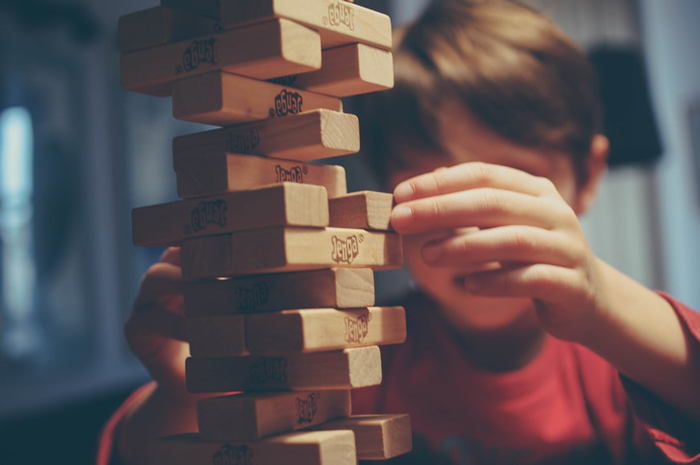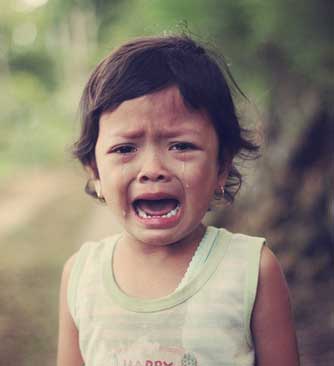What Causes The Fear of Failure in Kids?
The fear of failure strongly affects our life because, in fact, it blocks our desire to strive for something new and unknown, complex and little studied. Since childhood, many of us have become accustomed to scolding ourselves for mistakes. They were “punished” for failure with grades at school, and then at home.
Neuroscientists note that people learn more effectively when they are wrong. Especially after they had realized the mistake and worked it out. According to experts, if a child is afraid of making mistakes, this will affect not only his school performance but also his curiosity. The kid will simply avoid everything difficult and interesting, fearing not to cope or not to meet the expectations.
This is the normal work of the brain, which in every way tries to protect a person from danger. The stress, caused by mistakes, is perceived by our bodies as a danger. Therefore, with age, people increasingly avoid such situations. For example, they are afraid to change jobs for fear of failure or to travel abroad for the first time in adulthood.
Two reactions to mistakes
There are two types of an error response. In the first case, the child is engaged in self-torturing, trying to give up everything that he/she cannot do. Such children (and later adults) do not take on difficult tasks, fearing criticism. They mistakenly believe that they will not be able to master any skill if they did not succeed in something with the first try.
The second type of error response is healthier. Such children easily react to shortcomings and failures. They are not afraid of failure and not afraid to try again. Mistakes are perceived as a learning path and process. It often happens that mistakes motivate to take more intensive classes that will help correct them in the future.
Why children are afraid of failure
The fear of making mistakes in children does not arise by accident. In early childhood, when the kid’s worldview is just beginning to form, parents are the main source of information. If the child sees that the mother is very worried about their success in developing classes or in kindergarten, the fear of error arises from the unwillingness to upset her.
Psychologists say that moms and dads with the “A-student syndrome” (the desire to do everything perfectly well and receive only praise for that) in most cases transmit this syndrome to their children. Therefore, before you rid your child of the fear of failure, you should get rid of the fear of failure yourself.
When toddlers are just learning to eat with a spoon, they cannot do it right the first time. The kids stain everything they touch. We do not scold them and are not surprised – after all, it is so natural to learn something gradually. Why do errors surprise or upset us in other cases? It should always be remembered that the most rewarding experience is achieved through trial and error.
Fear of failure and parents: is there a connection?
It is common for children to be afraid of making mistakes only because of their parents and their reactions.
When moms or dads have high anxiety and strive to be socially approved, any childhood failure hits their self-esteem: “Has my child got a bad grade? Everyone will think I’m a terrible mother!” or “My child did not take first place in the competition. Everyone will think that I am an incompetent parent and do not invest in my child’s education!”
In this case, the child feels that it is important for the mother or father that the son or daughter never make mistakes. When parents treat children’s mistakes as the end of the world and show that it undermines their parental pride, the child begins to get nervous, worry, afraid, lose motivation and self-confidence.
The same thing happens if the parents have high expectations. Moms and dads perceive childhood failures in this way because in their illusory ideal world this is impossible to happen.
Their child is always the first, the best, the most skillful and talented individual. When the child is wrong, mothers and fathers are disappointed that the kid cannot meet their high standards.
What does fear of failure lead to?
Fear of making a mistake is a learned reaction, first – to parents’ actions and words, and then – to school, where success is measured by grades.
The fear of making a mistake provokes the emergence of internal tension, stress, anxiety. All of this can end in neurosis, apathy, low self-esteem, procrastination and even rebellion: why should I try if I still can’t do anything?
How to help your child overcome fears
Each parent can help their child eliminate the fear of failure. For this, you have to start with yourself. It is necessary to analyze your behavior, words, actions and answer the question: was it not because of me that the child began to be afraid of failure? Try to recall if you criticize yourself for failure. How do you react to your child’s failures: scold him, get upset, or get angry?
Another important step is to stop comparing your child to others. In an ideal parenting world, such a comparison should motivate the child, but in reality, everything turns out to be more complicated. Moms and dads just project someone else’s image on their child – the one they would like to see.
However, it is impossible to force a child to be what he/she is not, or what they themselves do not want to be. In addition, such comparisons are simply not consistent because other children have completely different conditions of social development and different physical data.
To help your child, you need to start listening to their words. If a child says that they are afraid of making a mistake in the dictation, when reciting a verse at the blackboard or may not take the first prize in the competition, you should not send them away with the words “Nonsense!” and “I’m not buying your stories!” Support and the ability to listen are the ultimate parental help.
How to support your child
How to properly support a kid who is afraid of failure?
First, fear cannot be kept silent. Talk to your child about this feeling. Explain that it is okay to be afraid, just as making mistakes is. Explain that all people make mistakes and fail from time to time, or better yet, provide examples from your own life.
Secondly, exclude reproaching from your speech (“There you go!”, “Not again!”, “I warned you!”). The child should not feel oppressed and believe that he/she is bad and unworthy because of one failing experience.
Third, focus on your kids’ success more often. Highlight their strengths, praise their efforts, explain that mistakes can almost always be corrected. Thus, worries about failure will soften and disappear.
If you understand that you are not coping with the situation, be sure to seek help from a child psychologist.
Why is it necessary to be wrong?
The ability to make mistakes affects the flexibility of the neural system. When children are not afraid to say what they think, even if their opinion is wrong, they develop a creative, innovative approach: they offer different solutions without the fear of being wrong. It is precisely one of the notorious skills of the 21st century, associated with creativity and flexibility. It partly develops due to this ability to make mistakes and boldly express their point of view.




